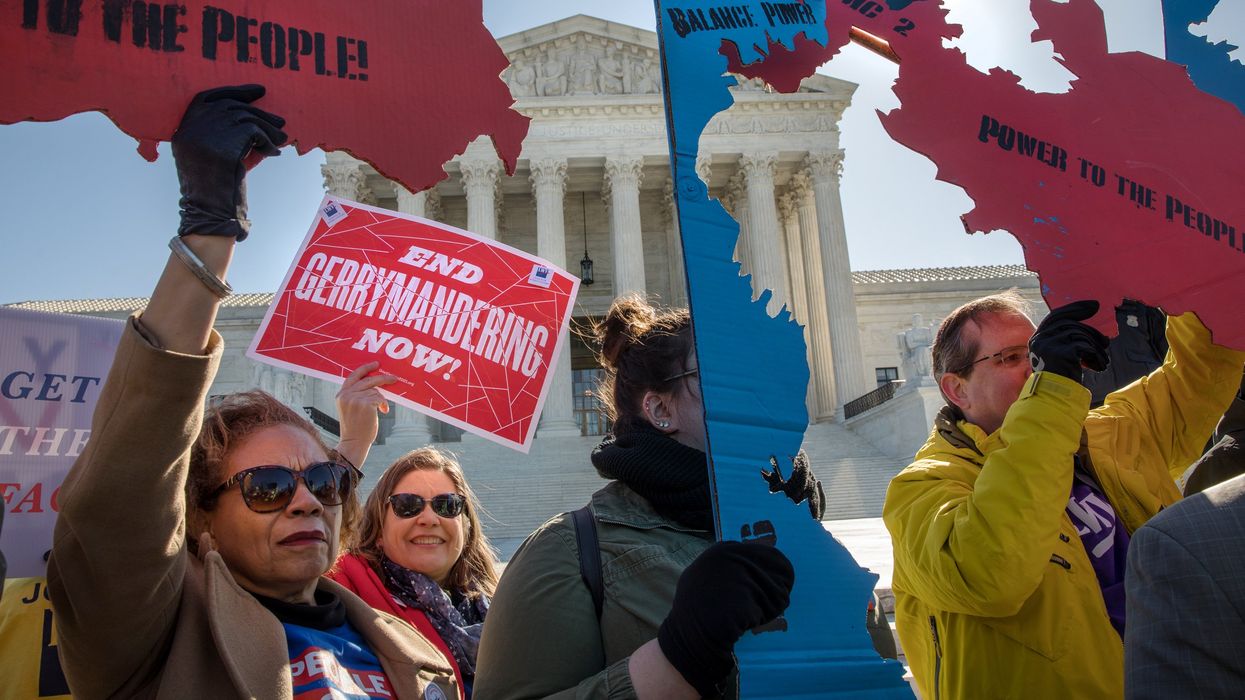Nevins is co-publisher of The Fulcrum and co-founder and board chairman of the Bridge Alliance Education Fund.
While most Americans only have a vague idea of what gerrymandering means, the impact on fair representation in the United States can’t be overstated.
Every 10 years the redistricting process occurs after the census to adjust congressional districts according to population. While the process is supposed to maintain fair and representative districts, politicians on both sides of the aisle have used this process to perpetuate their power.
To fix that problem, a group of House members reintroduced the Fair Representation Act on Thursday. Rep. Don Beyer (D-Va.), a lead sponsor, issued the following press release.
To address these structural gerrymandering issues and extreme partisanship in federal elections on March 20, 2024, U.S. Representative Don Beyer today led a House delegation in the re-introduction of the Fair Representation Act. The updated bill would implement measures to elect U.S. House Representatives through ranked choice voting in multi-member districts ... and require ranked choice voting to elect U.S. Senators.
The Fair Representation Act was supported by nonpartisan organizations including FairVote and RepresentWomen. More than 20 academics and thought leaders including Harvard’s Lawrence Lessig and Nicholas Stephanopoulos and Princeton’s Samuel Wang signed an open letterin support of the Fair Representation Act.
"The Fair Representation Act offers vital solutions to the hyper-partisan gerrymandering and lack of electoral competition that has allowed extremist ideologies to hijack our political discourse and sewn public distrust of our political system,” said Rep. Don Beyer. “Our bill would implement critical reforms to strengthen our electoral system, ensure every voter has their voice represented, and restore public trust. This is the way to produce a Congress made up of Members who prioritize pragmatic legislative results and solutions for the benefit of the American people.”
“The Fair Representation Act will breathe new life into American democracy, strengthening the voice of our people in our elections and, in turn, our government,” said Rep. Jamie Raskin. “I’m proud to cosponsor this legislation with one of my National Capital Region colleagues, Congressman Don Beyer, to establish multi-member congressional districts ... with members elected through ranked choice voting—three reinforcing measures that, taken together, will ensure voters are empowered to choose their officials, not the other way around.”
“Our country is ready for reform, and now is the time for Congress to act,” said David Daley, Senior Fellow at FairVote. “The Fair Representation Act would create swing districts everywhere and make every contest competitive in every state. It would end gerrymandering and more fully represent the breadth of ideas held by voters. It would greatly expand opportunities for communities of color to build power. And it would create incentives for legislators to work productively in service of the public interest rather than to obstruct and demean their opponents.”
“The Fair Representation Act outlines a bold plan to increase competition and fairness in U.S. House elections and reduce polarization, with added benefits for women candidates. No single reform would create more opportunities for women and people of color from across the geographic and partisan spectrum to win seats in Congress,” said Cynthia Richie Terrell, Founder and Executive Director of RepresentWomen. “The ability to compete in fair elections is central to our vision of how we achieve gender balance for women in Congress, in our lifetimes.”
“This bill works to make our democracy as fair as possible by creating ways that our country's remarkable diversity, including religious diversity, has representation in Congress – further ensuring that our democracy works for all and that all people, including those from minority faith traditions feel heard in Washington, D.C,” said Rev. Paul Brandeis Raushenbush, President and CEO of Interfaith Alliance. “This is not a partisan issue – it's a moral one, inspired by a commitment to equity, respect and inclusion for people of all backgrounds.”
“We admire the reforms proposed in the FRA,” said Lisa D. T. Rice, proposer of ballot measure Initiative 83 that would enact similar reforms in the District of Columbia. “What Congressman Beyer and his co-sponsors are trying to do for the nation, we are trying to bring to the nation’s capital. The FRA, like our initiative, is pro-voter. We are all working for electoral systems that will empower majorities and hold elected officials accountable.”
Full text of the Fair Representation Act is available here with a one-pager here and additional resources here.




















Trump & Hegseth gave Mark Kelly a huge 2028 gift